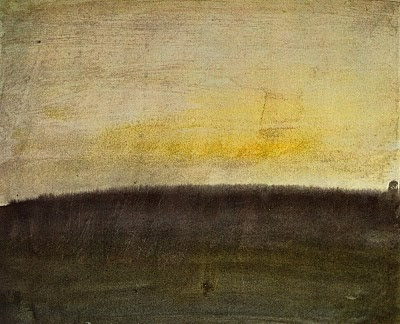Thursday, September 2, 2010
"an intuition of an order, a form beyond forms"
A partial definition, then, of organic poetry might be that it is a method of apperception, i.e., of recognizing what we perceive, and is based on an intuition of an order, a form beyond forms, in which forms partake, and of which man’s creative works are analogies, resemblances, natural allegories. Such a poetry is exploratory.
How does one go about such a poetry? I think it’s like this: First there must be an experience, a sequence or constellation of perceptions of sufficient interest, felt by the poet intensely enough to demand of him their equivalence in words: he is brought to speech. Suppose there’s the sight of the sky through a dusty window, birds and clouds and bits of paper flying through the sky, the sound of music from his radio, feelings of anger and love and amusement roused by a letter just received, the memory of some long ago thought or event associated with what’s seen or heard or felt, and an idea, a concept, he has been pondering, each qualifying the other; together with what he knows about history; and what he has been dreaming—whether or not he remembers it—working in him. This is only a rough outline of a possible moment in a life. But the condition of being a poet is that periodically such a cross-section, or constellation, of experiences (in which one or another element may predominate) demands, or wakes in him this demand, the poem. The beginning of the fulfillment of this demand is to contemplate, to meditate; words which connote a state in which the heat of feeling warms the intellect. To contemplate comes from "templum, temple, a place, a space for observation, marked out by the augur." It means, not simply to observe, to regard, but to do these things in the presence of a god. And to meditate is "to keep the mind in a state of contemplation’’; its synonym is "to muse," and to muse comes from a word meaning "to stand with open mouth"; not so comical if we think of "inspiration"—to breathe in.
Denise Levertov, "Some Notes on Organic Form," 1965. Text from Museum of American Poetics.
Beginning with Color: Pink Sky, J.M.W. Turner, 1820-30
Subscribe to:
Post Comments (Atom)



No comments:
Post a Comment